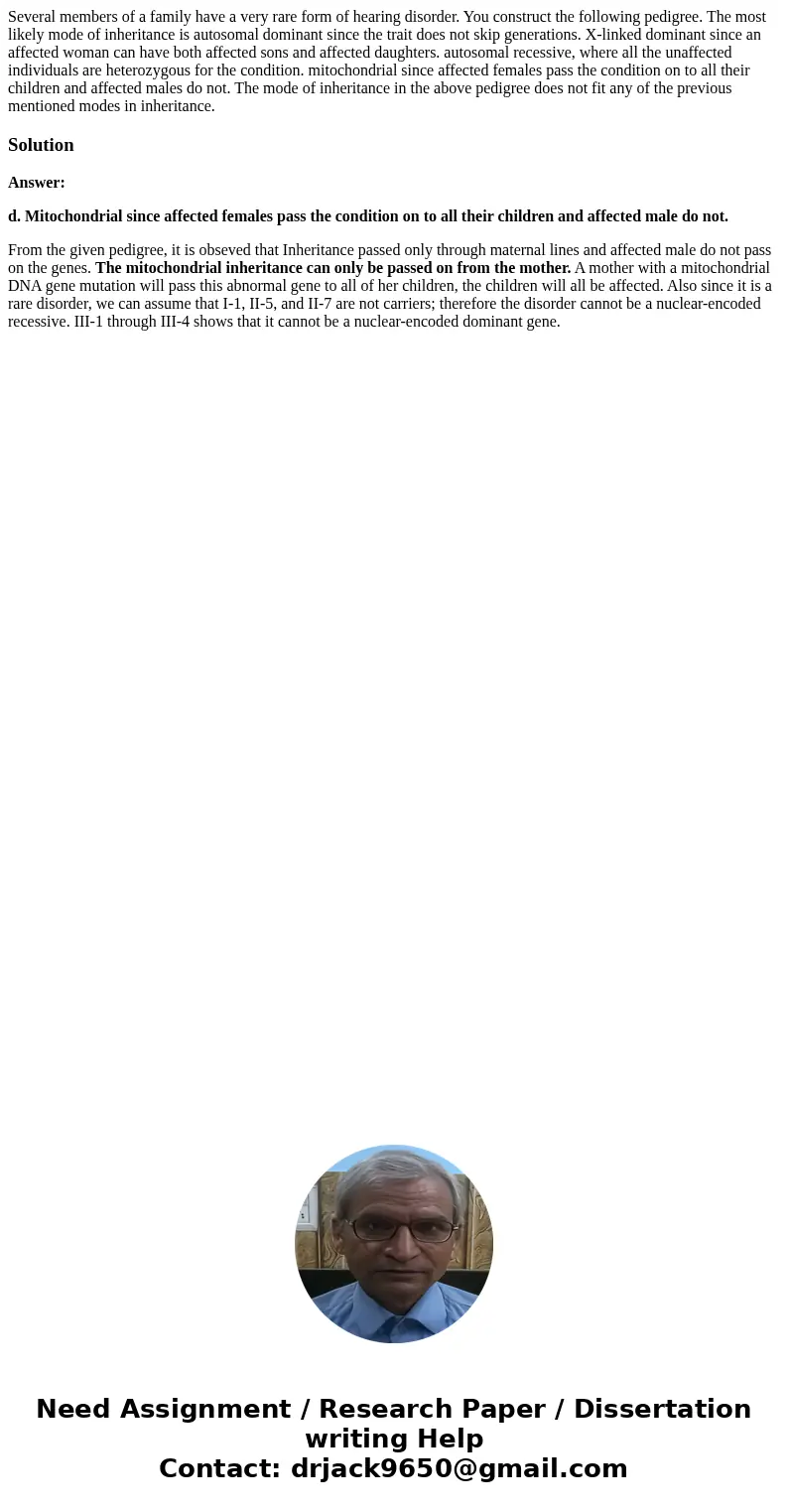Several members of a family have a very rare form of hearing
Several members of a family have a very rare form of hearing disorder. You construct the following pedigree. The most likely mode of inheritance is autosomal dominant since the trait does not skip generations. X-linked dominant since an affected woman can have both affected sons and affected daughters. autosomal recessive, where all the unaffected individuals are heterozygous for the condition. mitochondrial since affected females pass the condition on to all their children and affected males do not. The mode of inheritance in the above pedigree does not fit any of the previous mentioned modes in inheritance.
Solution
Answer:
d. Mitochondrial since affected females pass the condition on to all their children and affected male do not.
From the given pedigree, it is obseved that Inheritance passed only through maternal lines and affected male do not pass on the genes. The mitochondrial inheritance can only be passed on from the mother. A mother with a mitochondrial DNA gene mutation will pass this abnormal gene to all of her children, the children will all be affected. Also since it is a rare disorder, we can assume that I-1, II-5, and II-7 are not carriers; therefore the disorder cannot be a nuclear-encoded recessive. III-1 through III-4 shows that it cannot be a nuclear-encoded dominant gene.

 Homework Sourse
Homework Sourse